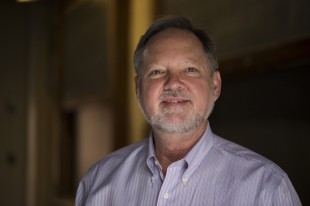Are liberals and conservatives hardwired to disagree? New research from Rice University and the University of Nebraska suggests that this may be the case.
In a study titled “Differences in Negativity Bias Underlie Variations in Political Ideology,” researchers suggest that liberals and conservatives may disagree about politics partly because they are different people at the core — right down to their physiology and genetics. Specifically, the researchers found that one unifying factor among the numerous differences between liberals and conservatives is the nature of their physiological and psychological responses to negative environmental features.
John Alford, an associate professor of political science at Rice and the study’s co-author, said that the research suggests it is biology — not reason or the careful consideration of facts — that predisposes people to see and understand the world in different ways.
“These natural tendencies to perceive the physical world in different ways may in turn be responsible for striking moments of political and ideological conflict throughout history,” Alford said.
“Conservatives are fond of saying that ‘liberals just don’t get it,’ and liberals are convinced that conservatives magnify threats; systematic evidence suggests both are correct,” said John Hibbing, lead author and the Foundation Regents Professor of Political Science at the University of Nebraska–Lincoln.
The study found that compared with liberals, conservatives tend to register greater negative physiological responses to stimuli and devote more psychological resources to them. For example, when study participants were shown pictures from the International Affective Picture System (IAPS, a database of pictures used to elicit a range of emotions), eye-tracking revealed that conservative respondents fixed their gaze on negative images more rapidly (less than .8 seconds for conservatives versus nearly 1.3 seconds for liberals) and stayed focused on negative images longer (about 2.8 seconds for conservatives versus about 1.9 seconds for liberals).
Alford noted that when eyes process images, they move so quickly that their movement is measured in microseconds. He noted that most eyes are still moving even as they appear to be fixated on an image.
“The fact that conservatives focused on images for almost an entire second longer than liberals represents a significant difference,” Alford said.
The study included a random sample of 340 U.S. adults over the age of 18 from Eastern Nebraska (54 percent female, mean age 45, 55 percent having at least some college experience). The sample included roughly equal numbers of politically conservative, liberal and moderate individuals as measured by a five-point self-identification scale.
Subsets of these people, chosen to focus specifically on self-described liberals and conservatives, were shown a series of pre-rated IAPS images, some that had been rated as aversive and some that had been rated as appetitive, and measurements were made of their eye movements and physiological responses. The paper also drew on dozens of pieces of research from experts focusing on the biology, neuroscience and genetics of political ideology.
Alford noted that bringing previous studies together with new research paints a bigger picture about how biology impacts political ideology.
“A recurring feature of human history is right-left political battles between adversaries who see a very different world,” Alford said. “Empirical evidence is increasingly documenting the psychological and physiological differences across people that can lead them to perceive the world so differently. For example, one person focuses on threats, but when facing the same situation, another person focuses on opportunities.”
Alford said it is not surprising that these different visions of reality lead to fundamentally different sets of political preferences.
“We see the ‘negativity bias’ as a common finding that emerges from a large body of empirical studies done not just by us, but by many other research teams around the world,” said Kevin Smith, co-author and professor and chair of political science at the University of Nebraska–Lincoln. “We make the case in this article that negative bias clearly and consistently separates liberals from conservatives.
“By documenting that political differences are not necessarily traceable to misinformation or ignorance on the part of one side or the other, scientific understanding of the broader and deeper bases of political diversity may make it possible for Emerson’s forces of tradition and innovation to live together, if not more profitably, at least less violently.”
The study, funded in part by the National Science Foundation, appeared in the June edition of Behavioral and Brain Sciences and is available online at http://bit.ly/UghYiP.



Leave a Reply